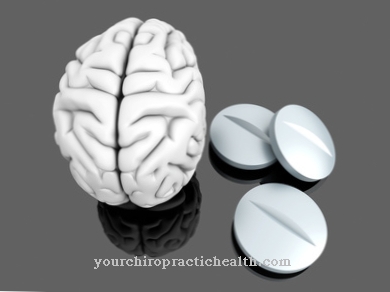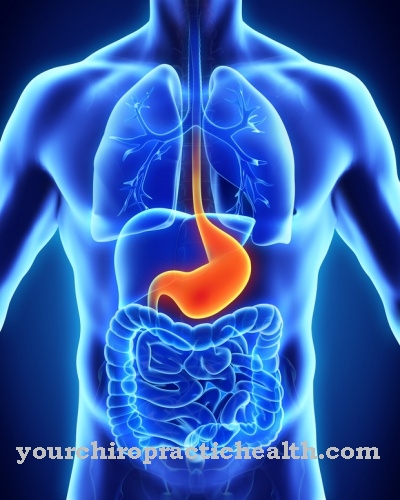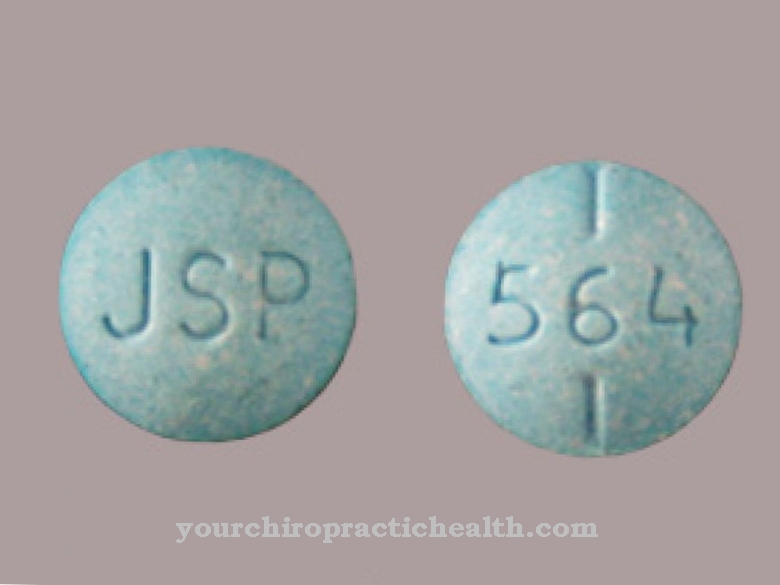Capsaicin is an alkaloid found in peppers. The biological substance is known as a condiment, but is also used in phytomedicine. The irritation of the heat receptors is the main effect of capsaicin.
What is capsaicin?

Capsaicin is a natural substance contained in peppers (Capsicum). The varieties known as chilli in particular have high concentrations of capsaicin.
Capsaicin is one of the alkaloids, which are alkaline (lye-like) biogenic nitrogen compounds. Like most alkaloids, capsaicin is also extremely fat-soluble. Alkaloids are found in almost all nightshade plants, but also in other plants. Some of them are known to be poisonous, but in medicinal doses they are also known as remedies (examples: the solanine in potatoes, caffeine or morphine).
Capsaicin is part of the secondary metabolism of the plant in the fruits of the peppers. This means that capsaicin is not essential for the plant, but it is an advantage in the “struggle for existence”. The flavoring and healing properties of paprika are essentially based on capsaicin.
Pharmacological effect
Capsaicin irritates the pain receptors in the skin and mucous membrane. These “nociceptors” are endings of sensory nerve cells that also register heat and the feeling of being burned and transmit them to the brain. There the perception of the known sharpness arises, which is basically a heat perception. So the perception is not based on a temperature stimulus, but on a biochemical effect. Hence one can speak of a kind of hallucination. (The effect of menthol is analogous to this in the area of cold perception).
Since our body feels warmth or heat under the influence of capsaicin, a number of defense reactions occur. First, the capillaries in the skin and mucous membrane expand (vasodilation), which results in increased blood flow. This in turn leads to a physical, ie "actual" heat development. Via the nervous and hormonal control, contact with capsaicin leads to increased saliva secretion and increased gastric juice secretion. In addition, the organism tries to defend itself against the supposed heat development with tears and perspiration.
In addition to these direct effects on the organism, capsaicin also has antibiotic properties. The killing of bacterial pathogens and fungi is decisive for the disinfecting effect of capsaicin.
Medical application & use
Capsaicin is contained in some medications due to its warming and blood circulation-promoting properties. Warming patches with capsaicin relieve the symptoms of sciatica or rheumatic pain.
Although capsaicin does not eliminate the causes of the symptoms in question, it does provide the patient with some relief. In the case of muscle pain, however, the self-healing power of the tissue is strengthened through an improved supply of oxygen. It could work similarly in the treatment of fibromyalgia. The use of capsaicin is being discussed against this “multi-lobular pain syndrome”.
In addition, capsaicin is used as a remedy for itching. The mechanism of action, however, is unclear, as is the causal effect capsaicin has on psoriasis. In small doses, capsaicin is used in ointments against nerve pain, whereby the effect is not immediate, but delayed a few days.
Capsaicin is used as a condiment to stimulate the appetite and as a digestive aid. The use of capsaicin as a prohibited doping agent in equestrian sports should also be mentioned. The pepper sprays known for self-defense and defense against pests also contain capsaicin.
You can find your medication here
➔ Medicines for back painRisks & side effects
Capsaicin Due to its highly irritating properties, it should always be used carefully and in the prescribed dosages. Otherwise unpleasant skin symptoms such as itching can develop.
Even blistering rashes can result in capsaicin. It is therefore advisable to always wear disposable gloves when applying creams containing capsaicin. When used externally, capsaicin should only reach the target location, especially the sensitive mucous membranes must be spared! Under no circumstances should infants and small children be treated with the alkaloid.
Ingestion of capsaicin (condiments) can cause shortness of breath and nausea. Emergency doctors are therefore always present at the competitions of chilli fanatics, which are in justified criticism. This reminds you to be careful when handling capsaicin.












.jpg)



.jpg)










.jpg)
